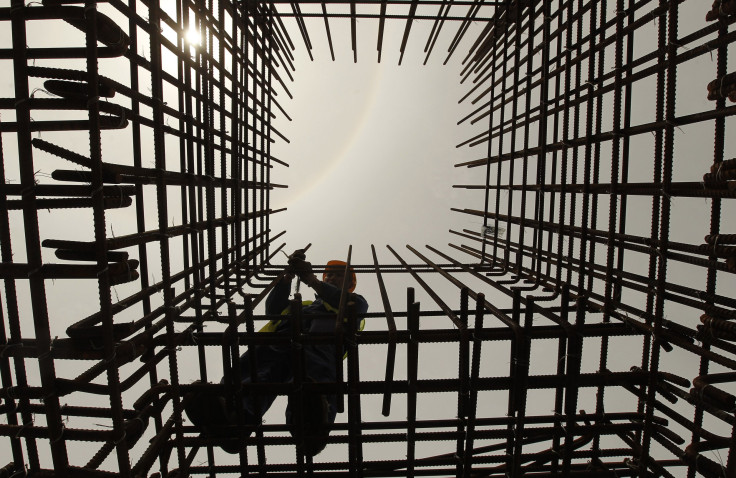Global Economic Growth Moderate But Fragile: World Economic Forum

TIANJIN, China – The global economy remains vulnerable to geopolitical shocks, stagnation gripping Europe, and the consequences of continued gradual slowdown in China. This was the consensus from a panel of prominent international economists who convened here Wednesday morning for the opening of the World Economic Forum.
Even as the sense takes hold that the American economic recovery has gained critical momentum, such benefits may be trumped by growing concerns that much of Europe remains markedly weak.
“Europe is struggling,” said Victor Halberstadt, an economist at Leiden University in the Netherlands. “It’s struggling more at this time than we had foreseen earlier in the year.”
While the continent’s largest economy, Germany, is expected to expand at a more rapid clip than other nations sharing the euro, “the rest of Europe will continue to be considerably below trend,” Halberstadt added.
In the broadest terms, the global economy appears to have reached a far stronger place than two years ago, when Europe was gripped by acute concerns about the fate of the euro and much of the world was still feeling the after-effects of the worst financial crisis since the Great Depression. The International Monetary Fund projects the global economy will expand by 3.6 percent this year, up from 3 percent last year.
But, if the darkest times now seem past, they have yet to be replaced by vibrant growth viewed widely as sustainable. Significant issues remain.
“The global economy continues to recover, but in a moderate fashion,” said Zhu Min, deputy managing director of the International Monetary Fund in Washington and a former senior official at the Chinese central bank, the People’s Bank of China. He listed weak growth in Europe and Japan as primary drags. “Geopolitical risk is another big concern,” he said.
Even as concerns have ebbed about the world’s largest economy, the United States -- unemployment has slipped to 6.1 percent, down from 10 percent five years ago -- worries center on how broadly the gains of recovery are being distributed, with scant impact on wages and millions of working-age people effectively falling out of the workforce.
Globally, concerns center on the role of the U.S. Federal Reserve as it eyes a potential exit from the stimulus programs it unleashed in the midst of the financial crisis. The American central bank has maintained interest rates near zero in a bid to spur economic activity by pumping money through the economy. Eventually, the Fed will feel compelled to raise interest rates to choke off potential price inflation.
“If the U.S. continues to recover, there will be a moment when the Federal Reserve has to raise interest rates, and the markets are not prepared for that,” said Ken Rogoff, an economist at Harvard University and former chief economist at the International Monetary Fund. “It’s very hard to have a tightening cycle. There’s very few examples where it’s been done smoothly.”
Rising American interest rates will put the brakes on economic growth in the U.S. More broadly, it will see money exit emerging markets in Latin America and Southeast Asia as investors shift away from riskier investments in pursuit of higher rates of return and sink funds into American government debt. Late last year, as the Fed cut slightly its purchases of bonds, many emerging markets -- among them, Indonesia, India and Brazil -- saw an exodus of finance that pressed their currencies lower.
“This is a very serious issue,” said Luis Alberto Moreno, president of the Inter-American Development Bank in Washington, which lends money in pursuit of economic development in Latin America and the Caribbean. “What happens to interest rates and the speed with which they go up will certainly have an impact on growth in 2015 and beyond.”
Rogoff counseled that the Fed ought to delay such action for as long as possible.
“My personal view is that we are coming out of something so catastrophic that you want to err on side of inflation drifting upward,” he said.
China has been engineering a gradual slowdown of its own economy as it shifts from a focus on maximizing growth to improving the results of its growth, limiting environmental destruction and spreading the spoils more broadly.
In recent years, China’s leaders have grappled with protests from farmers furious over the seizure of their land for development projects and from urban residents angry about air and water pollution. At the same time, China has been seeking to wean itself from a dependence on exports while stimulating consumer spending at home.
“The Chinese economy is in the middle of a very difficult and challenging transition,” said Li Daokui, dean of China’s prestigious Tsinghua University in Beijing.
That transition is now grappling with another variable, as China and Japan continue to face off over disputed islands in the East China Sea, dampening commerce between Asia’s two largest economies.
“For sure the political relationship between the two countries is hurting both economies,” Li said, before adding politically, “and more so on the Japanese side.”
© Copyright IBTimes 2024. All rights reserved.











